Exposure to toxic chemicals is on the rise — placing the health and longevity of our students at great risk. Invisible in air and water, toxins should be made visible in the curriculum. We offer lessons and resources for the classroom, along with stories about organizing for environmental justice.
Water and Environmental Racism: A Middle and High School Lesson
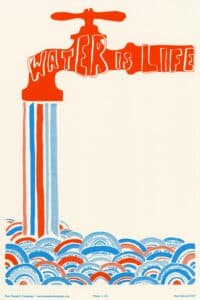
Art by Pete Railand via Justseeds
The Water and Environmental Racism lesson introduces students to the struggle of residents to access safe water for drinking, cooking, and bathing in the majority-Black cities of Flint, Michigan; Jackson, Mississippi; and Newark, New Jersey.
By bringing the circumstances of these locales into conversation with one another, students see that water crises are not simply accidents that could happen anywhere; they are manifestations of racism, past and present, that happen in some places — and to some people — far more than others. Download the lesson for free.
Fight for Life in Cancer Alley New Human Rights Watch Report
Into the Weeds Documentary
Into the Weeds follows the trial of school district groundskeeper Dewayne “Lee” Johnson and his lawsuit against Monsanto (now Bayer) for their weed killer Roundup and other pollutants that contribute to cancer in tens of thousands of plaintiffs. This Canadian film, available to stream in the United States, raises questions about the chemicals students are exposed to at school.
Students can learn about alternatives to pesticides and campaigns to protect public health from Beyond Pesticides.
Climate Crisis Timeline
We offer a timeline of the climate crisis that traces its roots from European colonial expansion and racial capitalism to present-day fossil fuel industry and government projects that exploit and destroy the Earth in the name of maximum profit. It also emphasizes moments and movements of resistance and activism that inform climate justice work today.
Events on the timeline include “Society vs. Nature” in 1641; the 1900 Galveston Hurricane; the first commercial oil well in the Middle East in 1908; the 1953 coup in Iran; the beginning of the “War on Terror” in 2001; the global student strikes in 2019; the climate crisis refugees in 2020; and many more.
Baltimore Students Fight for Clean Air: A Rethinking Schools Article
NPR Code Switch shares the story of students who organized to stop construction of a waste incinerator near their school in Baltimore. Bill Bigelow writes about the podcast episode in Rethinking Schools, “We know how horrific the climate catastrophe is — and will become. In our curriculum, we need to lift up stories about organizers who are hopeful, tenacious, defiant.”
Teaching Palestine-Israel: Environmental Impact of Israel’s War on Gaza
“The planet-warming emissions generated during the first two months of the war in Gaza were greater than the annual carbon footprint of more than 20 of the world’s most climate-vulnerable nations,” reports Nina Lakhani for The Guardian.
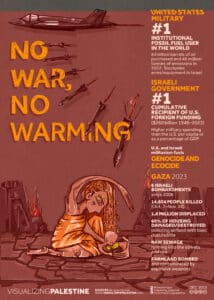 This quote is from a Collection of Environmental Reporting on Israel’s War on Gaza, compiled by independent investigative journalist Alleen Brown.
This quote is from a Collection of Environmental Reporting on Israel’s War on Gaza, compiled by independent investigative journalist Alleen Brown.
Brown notes that “Environmental strategies are key to Israel’s mass killing and displacement of Palestinians and . . . the environmental impact of this war will not end when the bombs stop falling.”
This collection of environmental reporting is among the resources we offer educators for teaching about Palestine-Israel.
The No War, No Warming poster is from Visualizing Palestine.
Social Justice Books: K–12 Books on the Environment and Climate Justice
Teaching for Change’s Social Justice Books offers a carefully selected list of recommended titles for K–12 on the environment and climate justice.

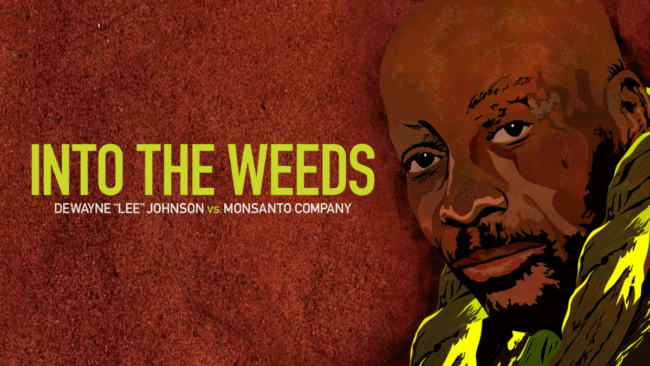
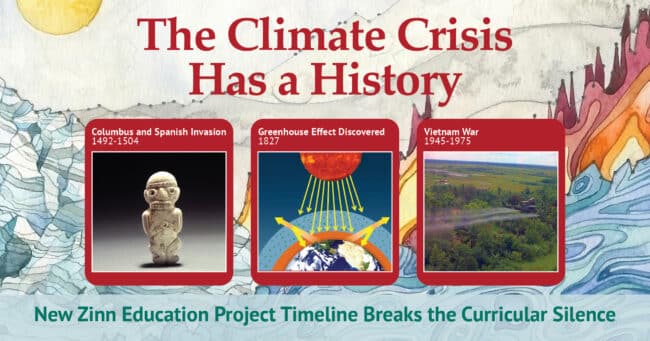

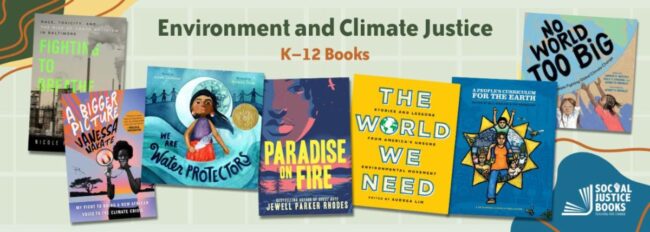
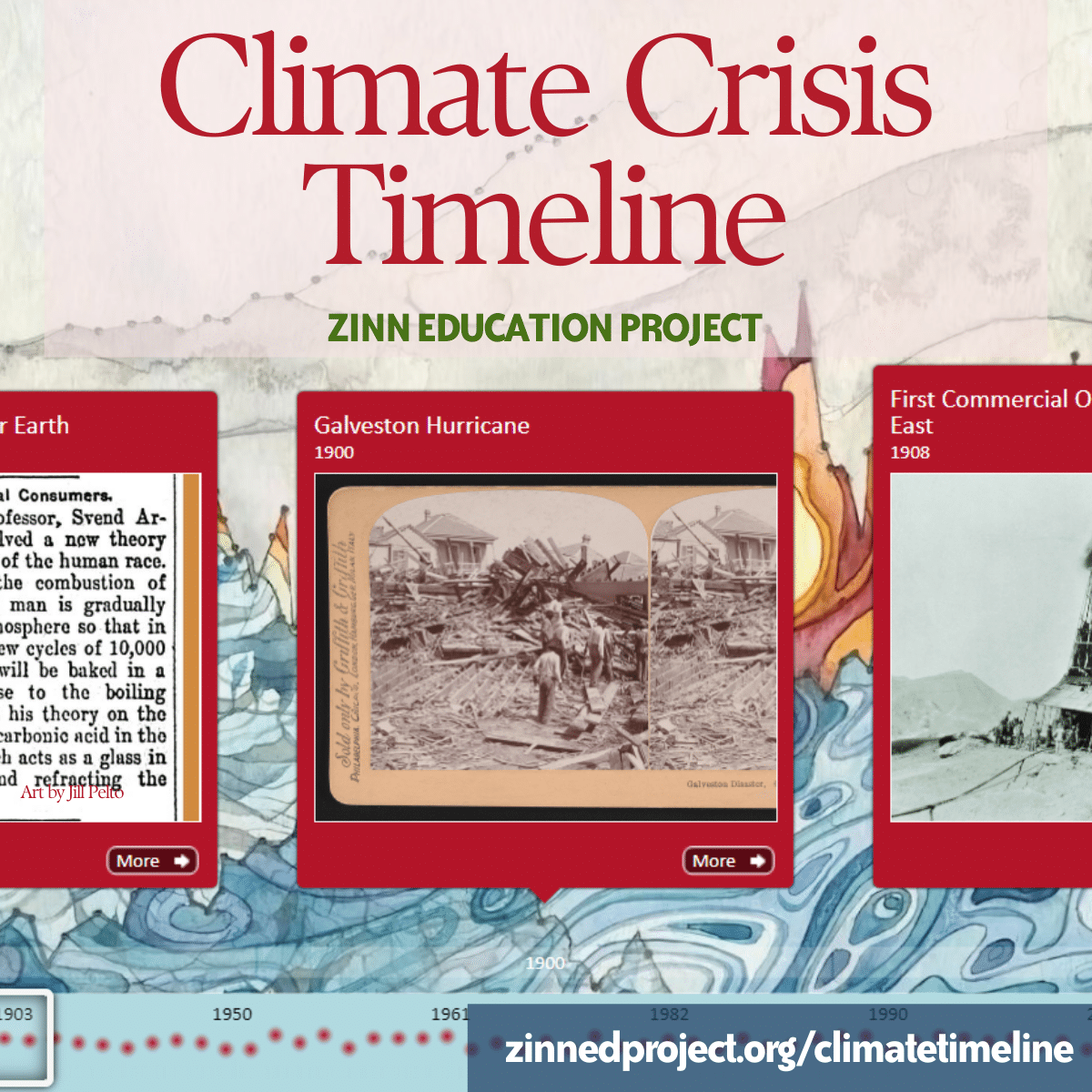





Twitter
Google plus
LinkedIn